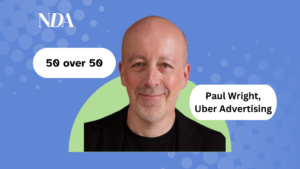Sky, the UK’s largest pay-TV broadcaster and telecommunications company, recently teamed with Quantcast and MediaCom to deliver its first ‘cookieless’ ad campaign for Sky Mobile.
Sky Mobile sought to increase sales by leveraging messaging that highlighted their latest phone models, a new feature set, and value. Building on a successful prospecting campaign with Quantcast, Sky Mobile’s agency MediaCom believed they could deliver even more impact with a new strategy. Understanding that over 50% of internet audiences are not addressable with third-party cookies, they wanted to find these missing audiences and drive incremental conversions with cookieless advertising.
By using the Quantcast Platform, the Sky trading team was able to activate on cookieless inventory, reaching previously inaccessible consumers; compare performance with and without third-party cookies; and validate, through their own deep-dive analysis, that cookieless prospecting drove incremental phone sales.
New Digital Age spoke to Sky’s Head of Digital, Davide Sirtori, about the campaign and the wider marketplace for digital marketing.
Did your first cookieless campaign deliver the outcomes you expected?
The results were conclusive: advertising in cookieless environments not only drove a 120% increase in traffic to the website, but also delivered 3.4x incremental mobile conversions. Also, due to the less competitive nature of cookieless inventory on the open exchanges, this was achieved at a 59% lower cost per visit. Given these results, we’ve now implemented cookieless strategies across all our products and made it standard practice across all direct response campaigns.
What are your main areas of focus right now?
Everything in the industry is moving towards AI-based learning and finding broader audiences to communicate with, rather than the sort of hyper-personalisation we were seeing a couple of years ago. That was fine while we had plenty of signals to work with but things have moved on. The algorithms of the various big platforms have improved a lot and people are much more confident and comfortable with how they work now.
Does that have any influence on the creative that’s being produced?
It means that you have a bit more room to test with different variations. With hyper-personalisation you were making a lot of assumptions about what was the right message to serve. Now, you can build a suite of different creative messages and trust in the algorithm to decide which is best suited to the audience being targeted.
What are the big priorities for Sky for the rest of the year?
Our priorities are understanding more about our audiences and moving to more of a customer lifecycle model of marketing. At Sky, we have existing customers for our TV and broadband products who aren’t currently Sky Mobile customers and vice versa. How do we target those people differently? How do we make sure they are getting the best value out of our products?
We’re also revising the way we drive traffic to our products and looking at the balance between paid search and organic, with a definite focus on driving more organic traffic. We’re also looking at the ways we produce creative to help ensure that we’re setting ourselves up for success in some of the newer media environments.









